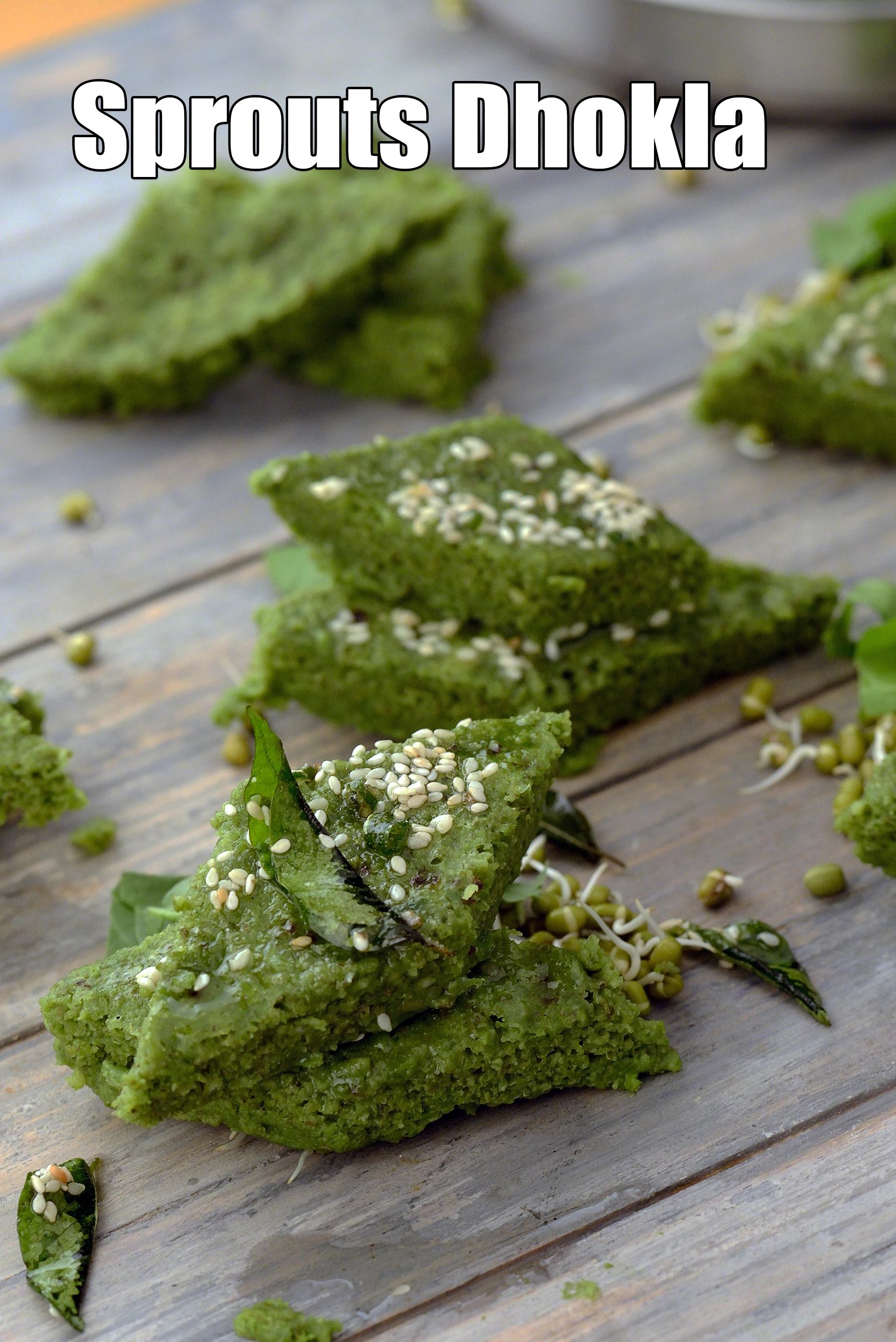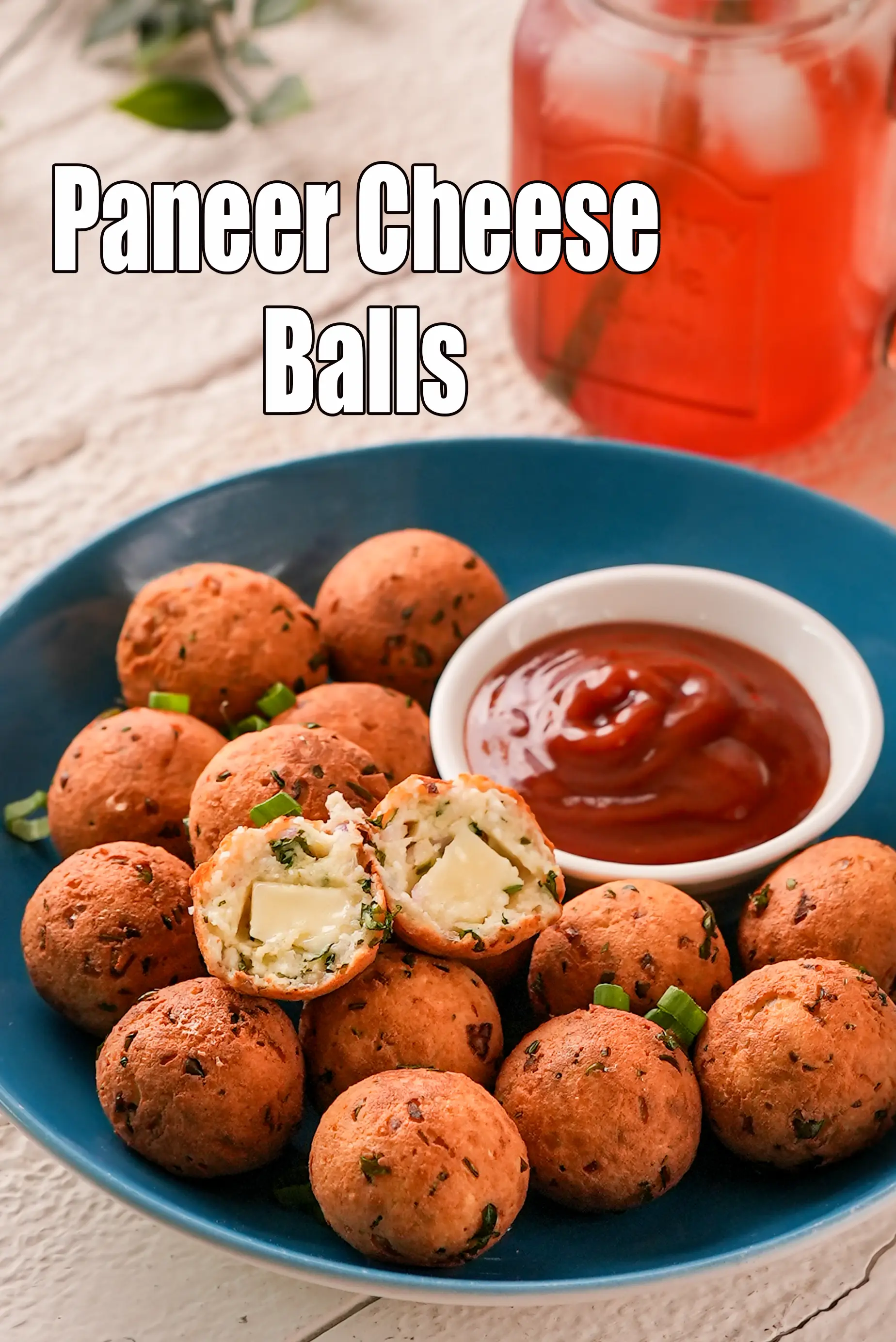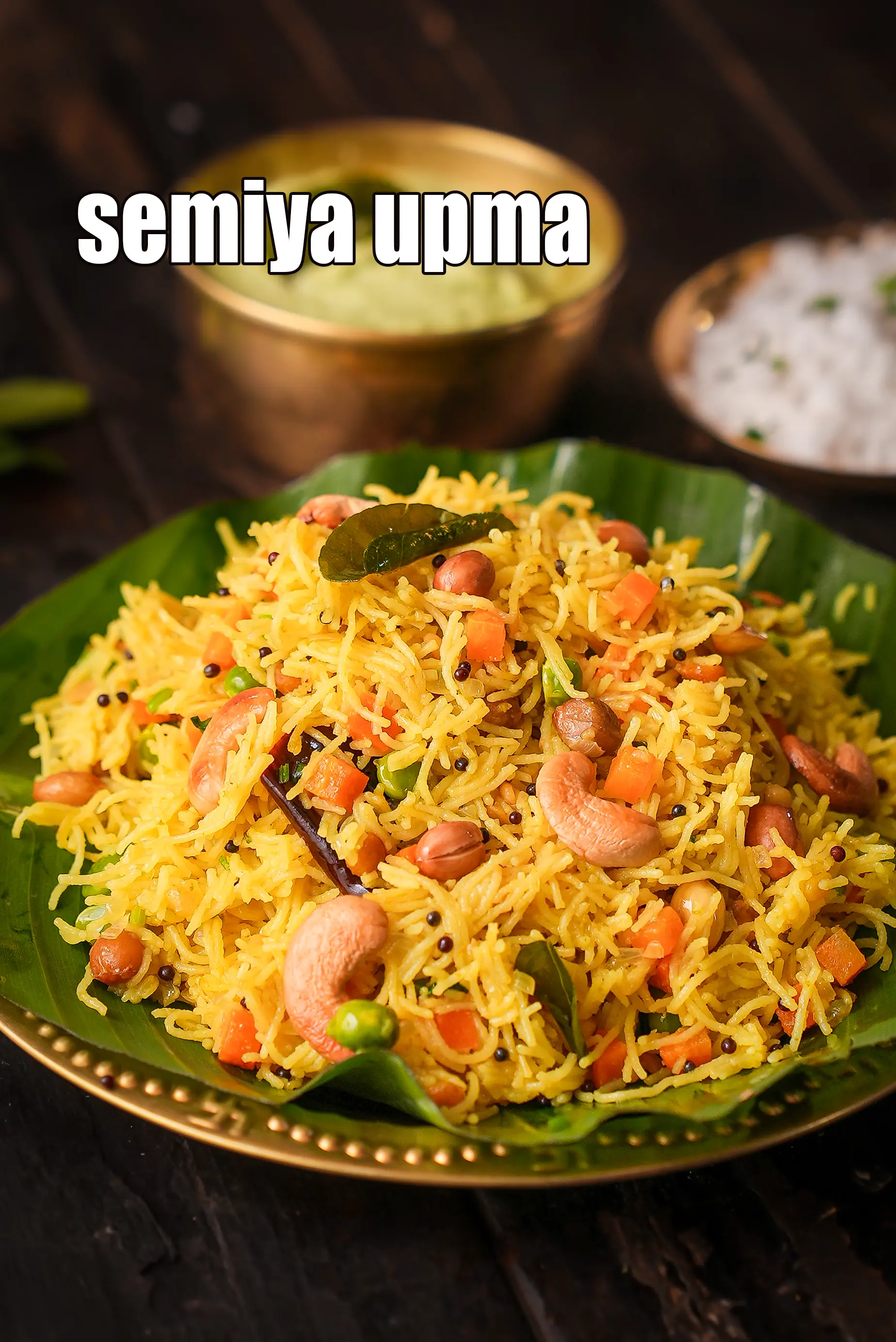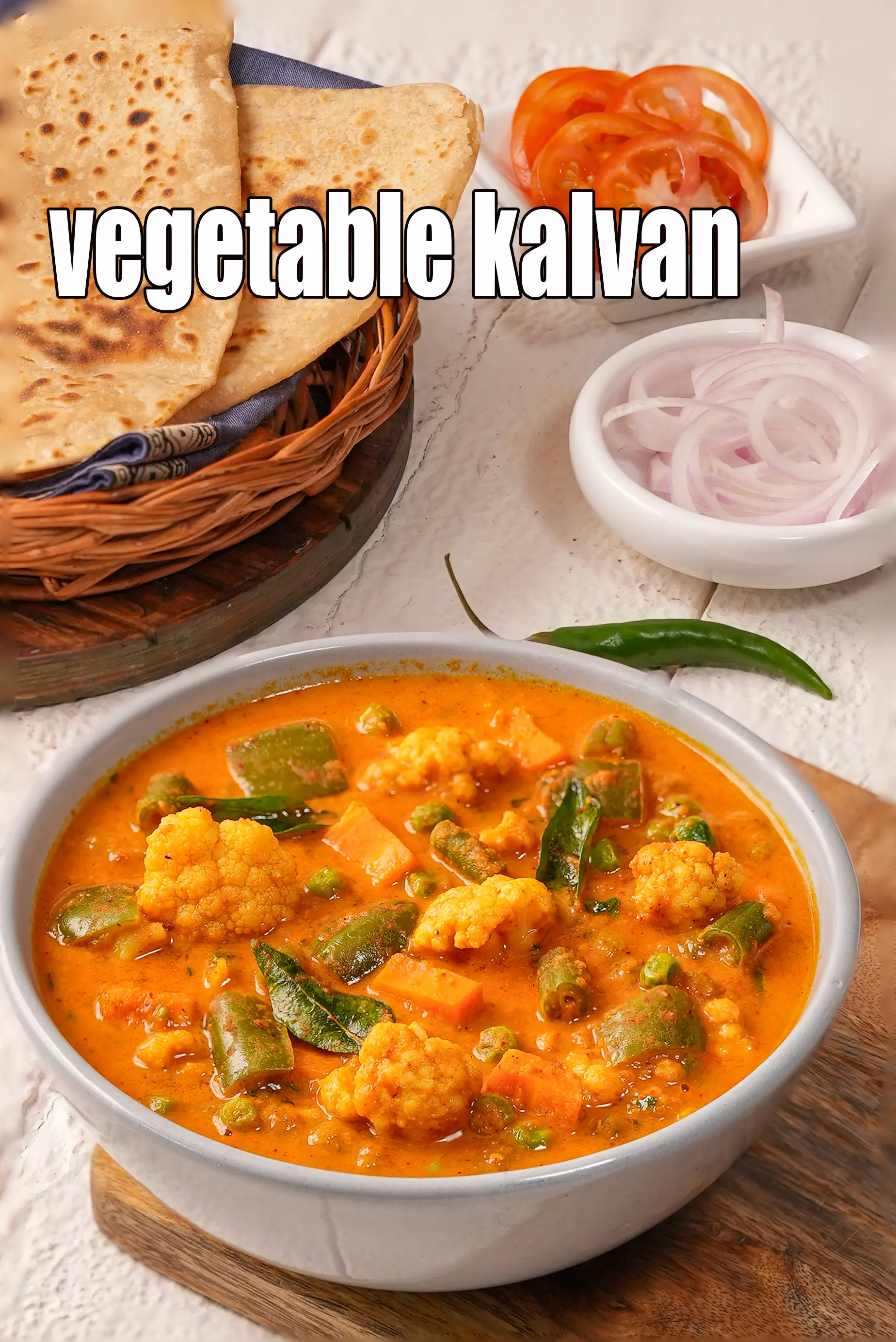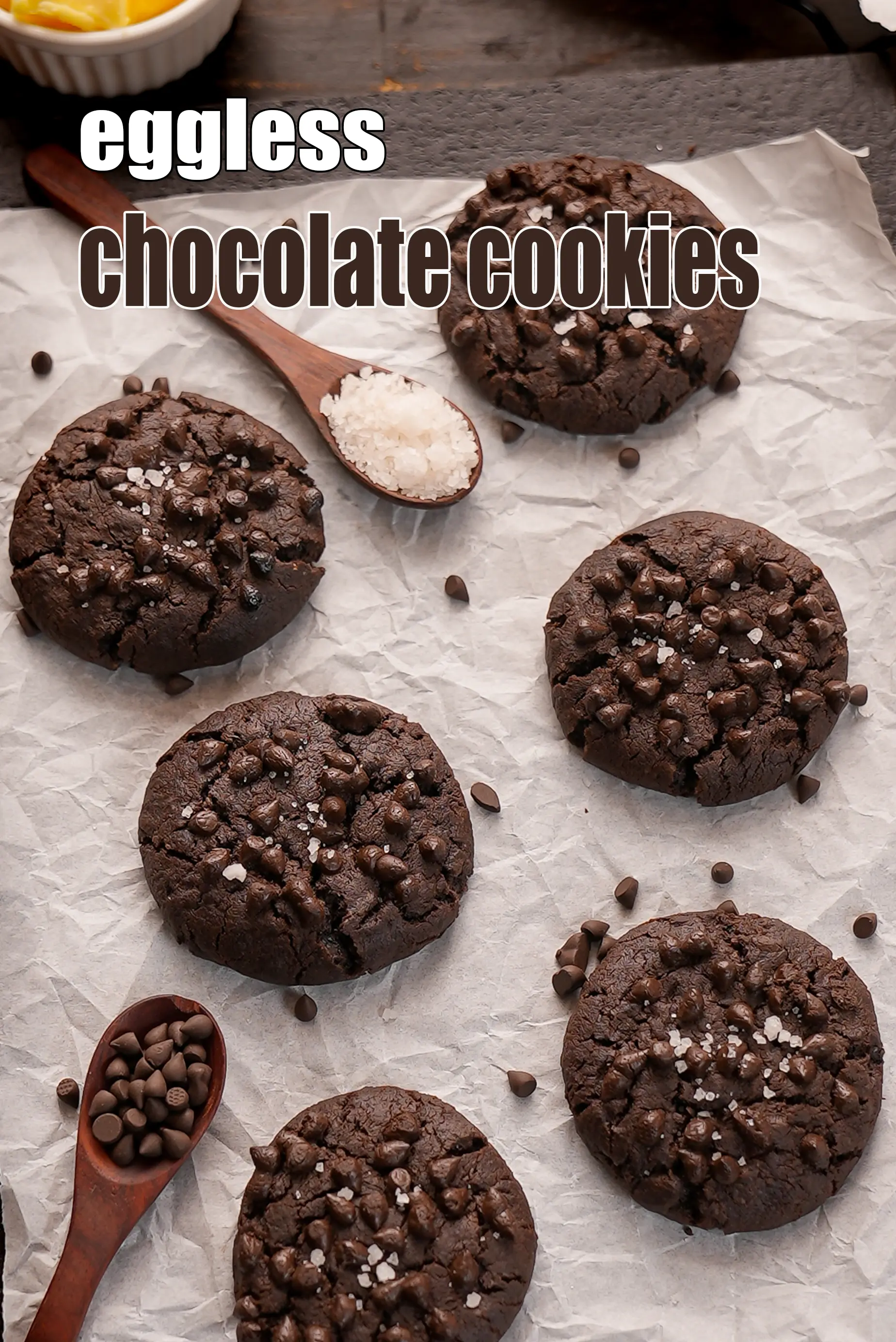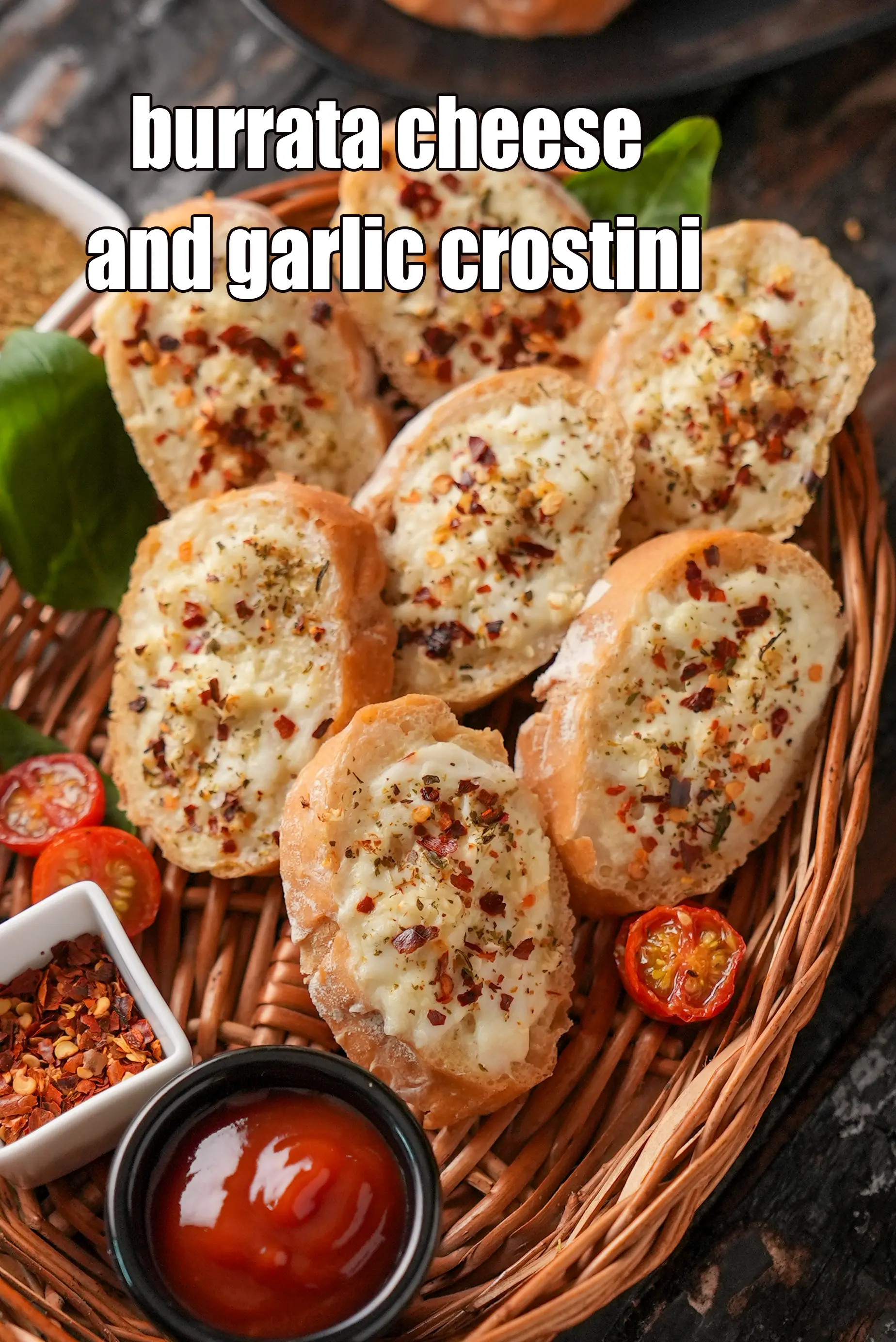Nutritional Facts of Moong Dal Sheera, Quick Moong Dal Sheera, Calories in Moong Dal Sheera, Quick Moong Dal Sheera
This calorie page has been viewed 4297 times
Table of Content
How many calories does one serving of Moong Dal Sheera have?
One serving of Moong Dal Sheera gives 563 calories. Out of which carbohydrates comprise 192 calories, proteins account for 35 calories and remaining calories come from fat which is 327 calories. One serving of Moong Dal Sheera provides about 28 percent of the total daily calorie requirement of a standard adult diet of 2,000 calories.
563 calories for 1 serving of Moong Dal Sheera, Quick Moong Dal Sheera, Cholesterol 5.3 mg, Carbohydrates 48.2g, Protein 8.7g, Fat 36.4g. Find how much fibre, iron, calcium, zinc, magnesium, phosphorus, sodium, potassium, folic acid is present in Moong Dal Sheera, Quick Moong Dal Sheera.
See quick moong dal sheera recipe | instant sheera | 20 minute sheera is an irresistible Indian mithai for people of all ages. Learn how to make instant sheera.
This instant sheera is ambrosia for all sweet lovers, especially those fond of sheera. This recipe is divine. It is coarse and sweet. It generally takes a long time to cook, but this recipe is made in just 20 minutes.
Cooked in milk, other ingredients like saffron, cardamom and almonds add a rich taste and texture to this 20 minute sheera. All you have to plan is to soak the moong dal for 2 to 3 hours in advance.
Made during special occasions like marriages and festivals, sheera appeals to everyone on a lazy afternoon after a grand meal too. This quick moong dal sheera is best served hot or warm.
Is Moong Dal Sheera healthy?
No, this is not healthy. Let's see why. The probelm is sugar. See below for details.
Let's understand the Ingredients.
What's good.
Ghee : Other than calories and fats, the only nutrients that ghee is rich in are the vitamins – all of which are fat-soluble. All the 3 vitamins (Vitamin A, Vitamin E and Vitamin K) are antioxidants which have a role in removing free radicals from the body and protecting our cell as well as help in maintaining skin health and glow. Ghee is an excellent, high-quality selection medium of cooking because of its high smoke point. As compared to most oils and butter, ghee can handle a smoke point of 230°C, 450°F, thus its less prone to oxidant and destruction of nutrients. Yes, ghee does contain cholesterol, but some amount of cholesterol is needed by the body. Cholesterol has some functions to play too. It is necessary for hormone production, brain function, cell health and lubricating the joints. It is, in reality, a high quality fat for the body and brain. Ghee is loaded with fats but that’s medium chain fatty acids (MCT) which aid in weight loss. Ghee is healthy for daibetics in small amounts and you need to check your fat intake at the same time. Learn to easily make your ghee at home which is free of preservatives. See benefits of ghee.
Yellow Moong Dal : The fibre (4.1 g in ¼ cup) present in yellow moong dal prevents the deposition of bad cholesterol (LDL) in the arteries which promotes a healthy heart in turn. Packed with nutrients like zinc (1.4 mg), protein (12.2 mg) and iron (1.95 mg), yellow moong dal helps to maintain the elasticity of your skin and help to keep it moist. Fiber, potassium and magnesium from yellow moong dal will work together to regulate blood pressure and soothe the nerves and is diabetic friendly. See here for details of 7 amazing benefits of yellow moong dal.
Milk, Low Fat Milk, Milk powder : 1 cup of milk provides 70% of the Recommended Daily Allowance of Calcium. Milk promotes strong bones. The Calcium in Milk helps to protect your teeth against gum disease and keeps your jaw bone strong and healthy. Milk is low in carbs and therefore does not raise blood glucose levels. However diabetics must consider including low fat milk as advised by their dietitian only so as to avoid any fluctuations in blood sugar levels. Protein is another key nutrient which milk is rich in - 8.6 g from a cup. So all those looking to build protein stores can add milk and its products like curd and paneer to their diet. One cup of Milk gives 10 grams of carbs. Low fat milk has lower fat and the same benefits of milk.
Almonds (badam) : Almonds are rich in B complex vitamins such as Vitamin B1, Thiamine, Vitamin B3, Niacin and Folate which plays an important role in the brain development. Almonds balances your cholesterol levels. almonds have a very low glycemic index and good for diabetics. See all 13 super health benefits of almonds.
What's the problem?
1. Sugar : Sugar is also called white poison. It is a simple carbohydrate with zero nutritional value. On intake, sugar will cause inflammation of the body which will last for many hours. It will spike your blood sugar level and shut down the fat burning process. To live a healthy life, try and cut sugar which from your diet. It requires a slow and deliberate attempt to do it. Find hidden sugar in packaged foods and drinks and stop having those products. Did you know that a can of your favourite soft drink is estimated to have 1/2 cup of sugar.
Can diabetics, heart patients and over weight individuals have Moong Dal Sheera?
No, this recipe is not good for diabetics, heart and weight loss.
Sugar is also called white poison. It is a simple carbohydrate with zero nutritional value. On intake, sugar will cause inflammation of the body which will last for many hours. It will spike your blood sugar level and shut down the fat burning process. To live a healthy life, try and cut sugar which from your diet. It requires a slow and deliberate attempt to do it.
Can healthy individuals have Moong Dal Sheera?
No, they cannot or rather should not. The calories are poor quality calories which will lead to weight gain.
What is a healthier option to Sheera?
We suggest you try low fat gajjar halwa recipe which uses dates as a sweetner.
| Energy | 563 cal |
| Protein | 8.7 g |
| Carbohydrates | 48.2 g |
| Fiber | 2.2 g |
| Fat | 36.4 g |
| Cholesterol | 5.3 mg |
| Vitamin A | 344.7 mcg |
| Vitamin B1 | 0.1 mg |
| Vitamin B2 | 0.1 mg |
| Vitamin B3 | 0.9 mg |
| Vitamin C | 0.3 mg |
| Folic Acid | 39.3 mcg |
| Calcium | 100.5 mg |
| Iron | 1.3 mg |
| Magnesium | 53.1 mg |
| Phosphorus | 69 mg |
| Sodium | 13.2 mg |
| Potassium | 364.3 mg |
| Zinc | 0.9 mg |
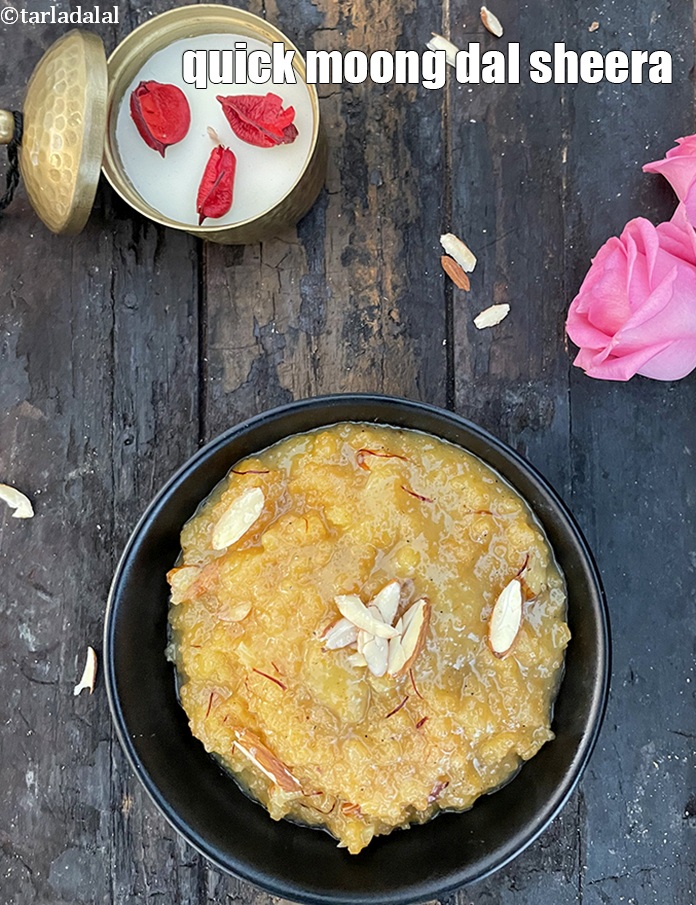
Click here to view Moong Dal Sheera, Quick Moong Dal Sheera
Calories in other related recipes
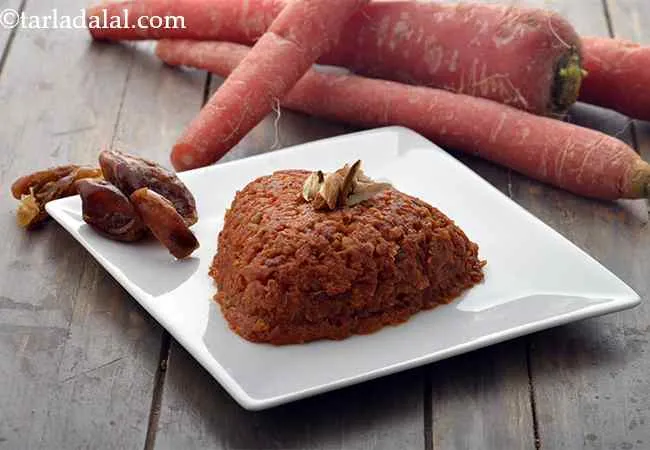

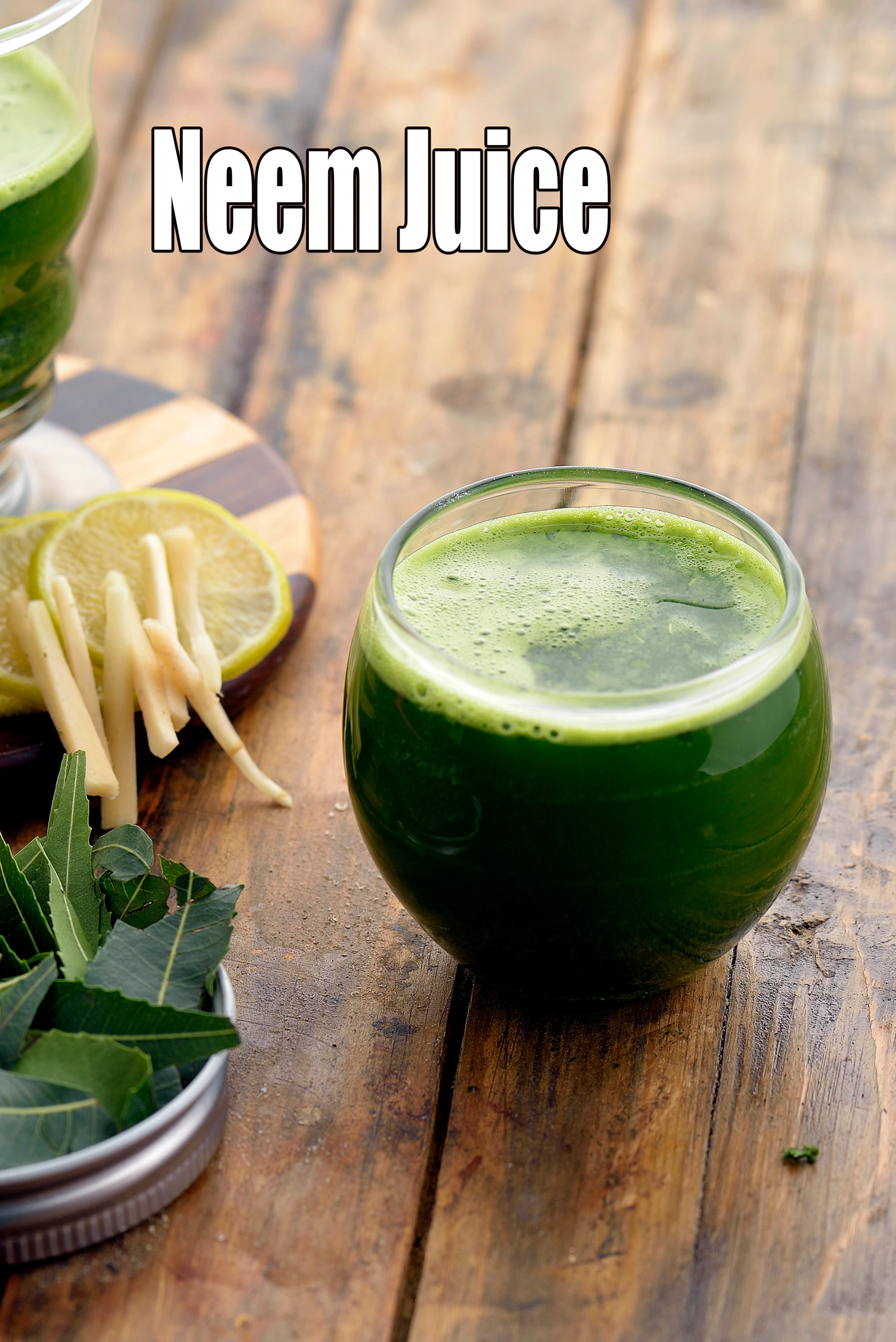
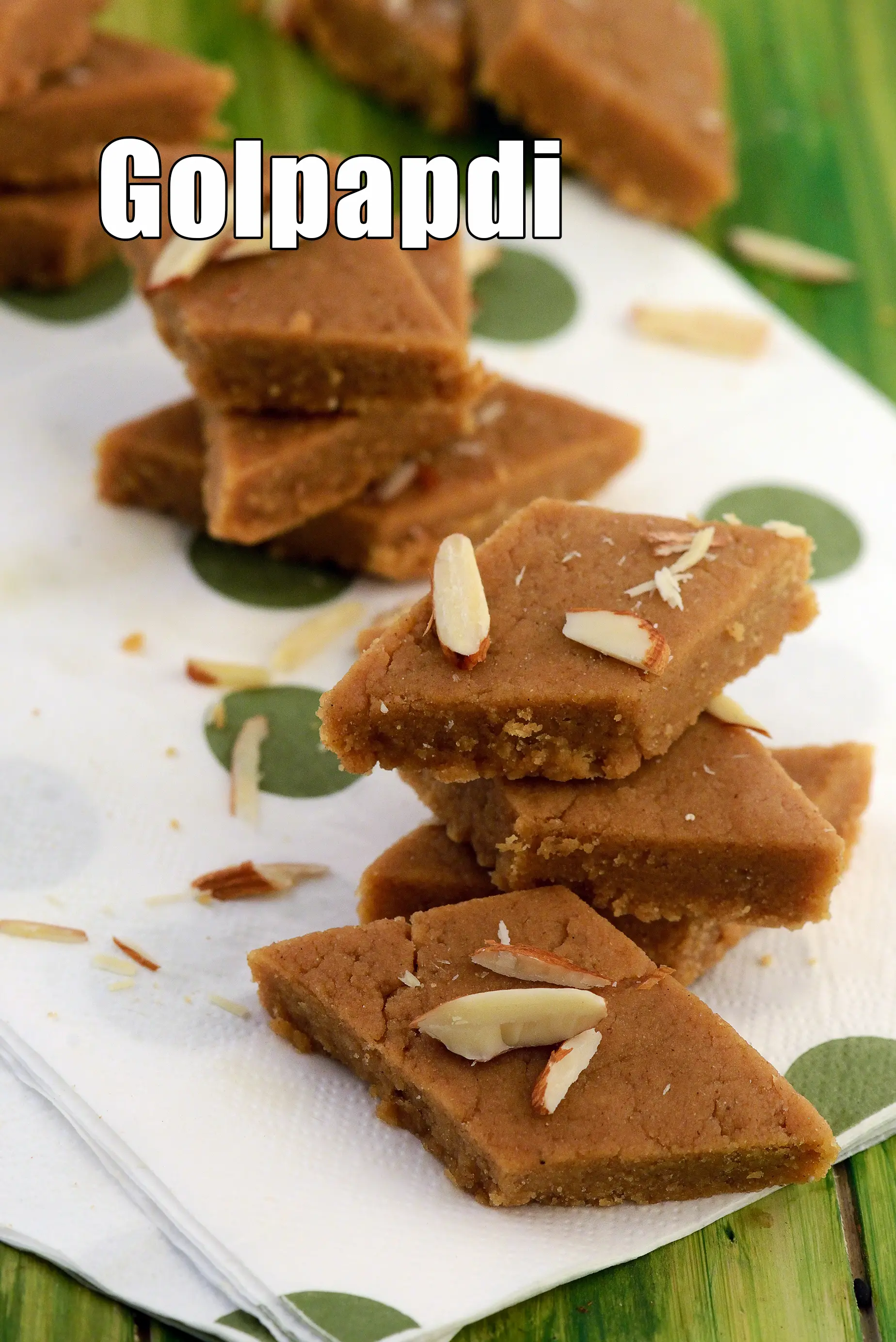
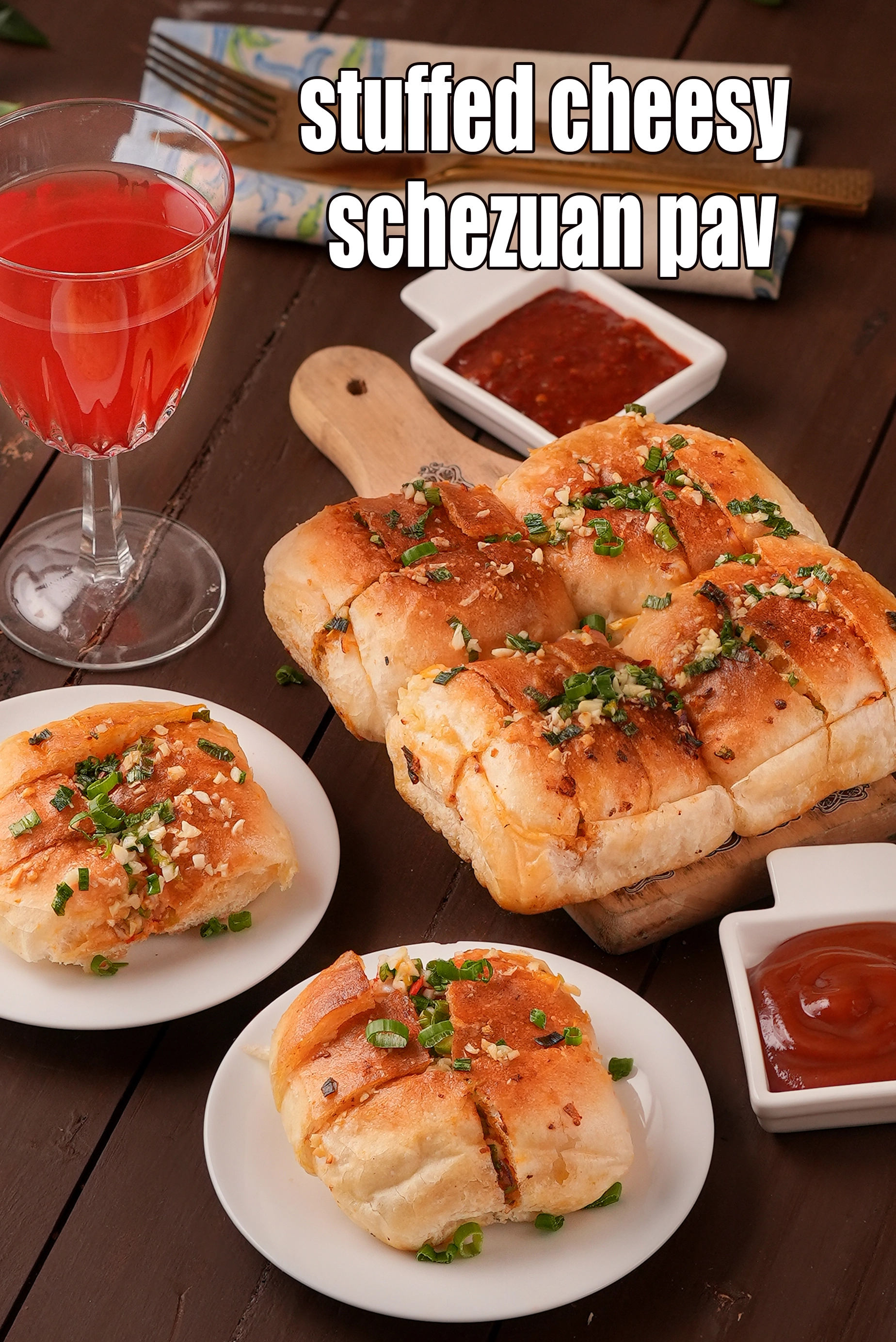
-10876.webp)
